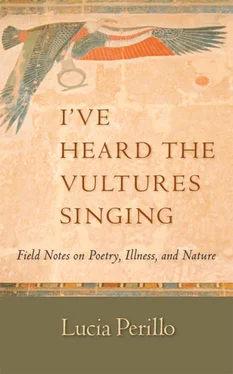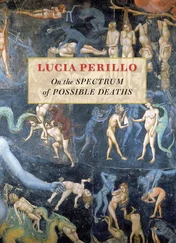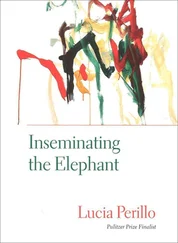My embarrassment about being a poet comes partly from the narcissistic aspect of publication but also partly, I confess, from poetry’s having so little value in the marketplace, my brain possessing a tiny lobe that desires economic rewards. My father was always mystified when he phoned and asked what I was doing and I answered that I was working, work being something you get paid for. When the Lilly drug company heiress left her money to Poetry magazine, my mother, like many other Americans I’m sure, felt that it would have been more conscionable for the money to have been given back to all the people who were overcharged for their drugs.
My parents’ trouble stems from the fact that the value of even the most famous poems cannot be assessed, their worth being nil to much of our culture partly because their medium, language, is so ephemeral and cheap — and has been suspect almost as far back as its inception for being capable of pulling the wool over our eyes. In the past, sometimes an advertising agency would glom onto some fragment of poetry’s high rhetoric — this happened to T. S. Eliot’s lines “Time present and time past / Are both perhaps present in time future” (which were used to sell cars) and also to W. H. Auden’s “We must love one another or die” (which was used to sell the nation LBJ). But lately our culture has lost its habit of respecting instances of graceful speech. It has been almost forty years since we’ve admitted lines from orators like John F. Kennedy and Martin Luther King into our daily conversation.
Usually poetry proves too elusive to be of much use as a commodity. By way of example, because it’s short, I’ll use the famous poem, originally an untitled section of a mixed-form book-length work by William Carlos Williams, that goes
so much depends
upon
a red wheel
barrow
glazed with rain
water
beside the white
chickens.
On the Internet I find that a rare-book dealer is asking $2,500 for a signed first edition of Spring and All , the book in which this first appeared, but of course it is the paper itself that wears the price tag. The value of the poem itself can’t be assessed, unless we could figure out how many people have been employed teaching it, or we calculated the other subtle social functions of the poem — like how many teenagers read the poem and decided to become writers instead of petty criminals (though in one survey, college freshmen reported that this was the poem that, having been forced to analyze it in high school, they hated most).
Even poets would concede that the actual words of “Red Wheelbarrow” are of little value in aesthetic terms. They are pedestrian, and most of them fall — with the exception of the verb glazed and the somewhat archaic upon —within the range of grade-school language. It is the mysterious equation set up by the first line that gives depth to the poem, which was little noted until a good thirty years after it was first published. It then won its throne because of how neatly it summarized the complex idea that not only helped create Ernest Hemingway (the idea insisting that complex ideas can only be rendered though concrete things) but also the painter Edward Hopper, who turned back to realism despite the twentieth century’s abstract vogue.
The poem nudged the culture. How much is this worth?
In 1979 a poet named Lewis Hyde published a book called The Gift , which wrestles with the value of intangibles. (One section discusses the Ford Motor Company’s calculating the worth of a human life as $200,725 in 1971 after the car named Pinto repeatedly exploded. More recently, the Department of Transportation has assessed a life at $3 million, though the Environmental Protection Agency calculates its worth at more like $6 million.) For its central project, the book tries to make a connection between poems and the gifts that many cultures, like the Native American tribes of the Pacific Northwest, exchanged as part of the annual cycle of living. Sometimes valuable gifts were also destroyed by their recipients, a gesture insisting that the gift was not to be converted to personal wealth.
Instead, the circulation of gifts cemented the tribe the way ions flowing through a magnet will bond other metals to it. Gift-giving was largely restricted to the confines of the tribe, who understood the rituals of the exchange. Outsiders didn’t, such as when Native Americans gave the European settlers gifts with the expectation that these gifts would then be passed on, this circulation a mandatory aspect of the ritual (hence the origin of the expression Indian giver ).
These ideas can easily be applied to the way poetry is received, here in the American now. Poets are said to be an insular tribe who exchange their gifts mostly with one another, the readers of poetry being poets themselves. (Though I did go to a yard sale last year where a woman recognized me from the picture on my book. “You must be a poet,” I said, and she answered no, she just happened to read poetry. “So you are the One! The One nonpoet reader of poetry in the land!” I shouted. But from the way she rolled her eyes I could tell it was a familiar joke.)
A friend who is a scholar has pointed out that the ideas sketched out in The Gift are very much in keeping with the anti-consumerist counterculture of the 1970s, and therefore come tinged with a sentimentality whose shelf-life has expired. Poets now occupy the middle class, by dint of the increased presence of creative writing in academia; yet while this explosion of interest has occurred, poems have continued to go extinct from general-interest magazines like Rolling Stone. My brain sometimes is hobbled, not so much by the depreciation of a poem’s dollar worth as poetry’s wholesale dismissal from the assembly of art worth attending to, and I have to talk myself into the idea that there is a value, a pseudo-monetary value, attached to the poem. Or that no-value is still a value, an anti-value that suits the anti-barter.
Native American cultures do provide useful metaphors to describe poetry’s circulation, especially when it comes to the differences between trade within the tribe and trade with outsiders. Within the tribe, what is traded must belong to the realm of gift; commerce is restricted to strangers. Among poets, monetary transactions often come off as tacky when they’re made with other poets. The most memorable example I can think of is contained in Rainer Maria Rilke’s Letters to a Young Poet , the record of a correspondence he maintained for several years with a (slightly) younger man named Kappus. In his third letter, in response to what has apparently been a request for books, Rilke writes:
Finally, as to my books, I would like to send you all that might give you pleasure. But I am very poor, and my books, once they have appeared, no longer belong to me. I cannot buy them myself — and, as I would so often like, give them to those who would be kind to them. So I am writing you on a slip the titles (and publishers) of my most recent books (the latest, in all I believe I have published some 12 or 13) and must leave it to you, dear sir, to order some of them when occasion offers. I like to think of my books as in your possession.
This passage has always stuck with me because it is so obviously wrought from connivance. Rilke professes generous intentions and then flatters the sensitivity with which Kappus would hypothetically receive the books, all of this a buildup to the sales pitch and the come-on of “dear sir” before Rilke seals the deal with the confident assumption that Kappus will rush out and buy. We do not like to see our literary heroes in such a sniveling light.
This explains why it’s extremely uncomfortable, for example, to maintain one’s own cash box at a poetry reading where books are being sold — the poet makes someone else do it so that he or she will not be soiled by money. In actual practice, poets have always marketed themselves: in America, Walt Whitman set the template for unabashed self-promotion by almost singlehandedly producing his books, taking charge of all aspects of their dissemination, from printing to advertising to finally mailing orders out, and even reviewing. (His reasoning: “I have merely looked myself over and repeated candidly what I saw. . If you did it for the sake of aggrandizing yourself that would be another thing; but doing it simply for the purpose of getting your own weight and measure is as right done for you by yourself as done for you by another.”)
Читать дальше











![Various - Birds and Nature, Vol. 12 No. 5 [December 1902]](/books/745517/various-birds-and-nature-vol-12-no-5-december-thumb.webp)
![Various - Birds and Nature Vol. 11 No. 2 [February 1902]](/books/745533/various-birds-and-nature-vol-11-no-2-february-1-thumb.webp)